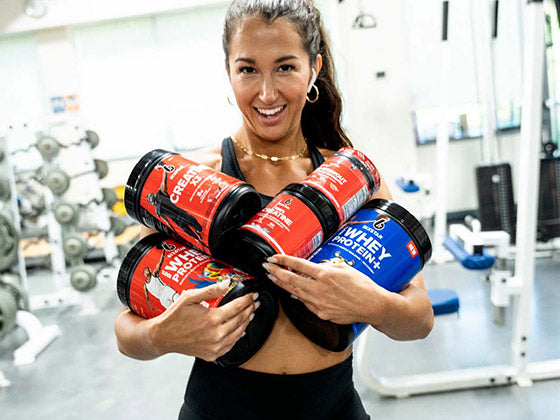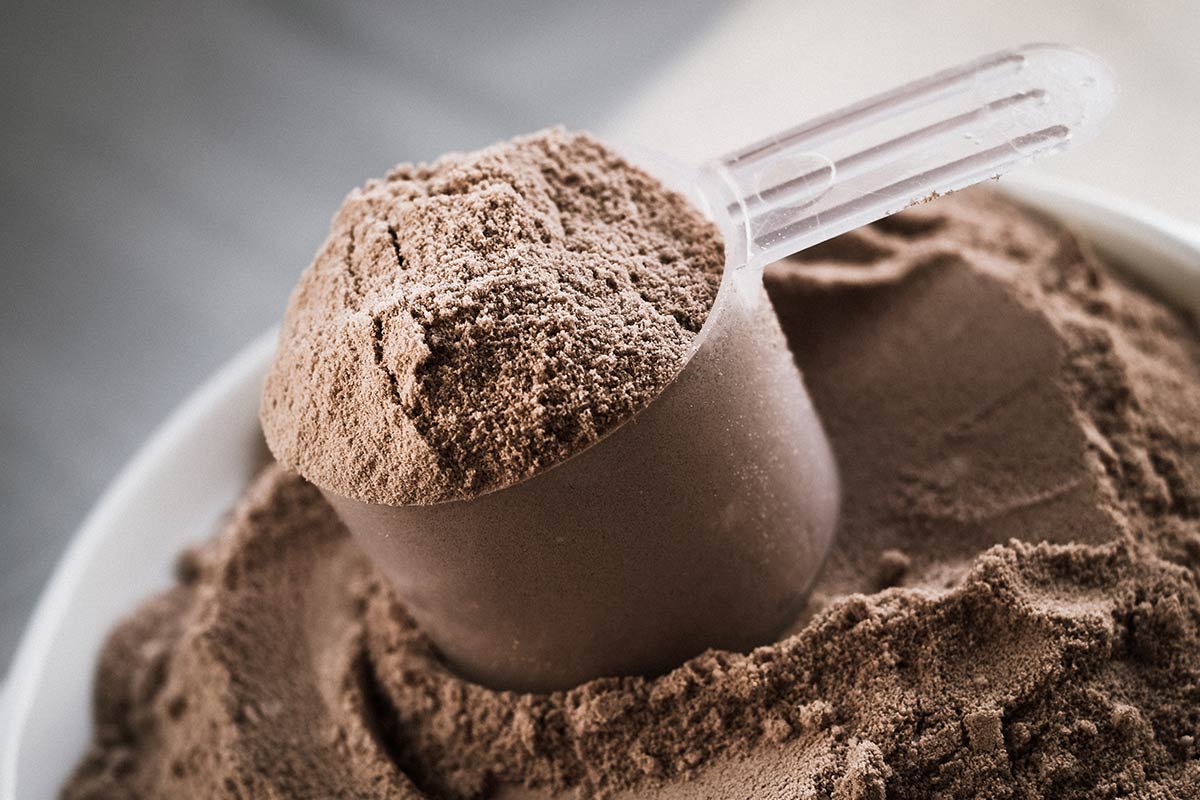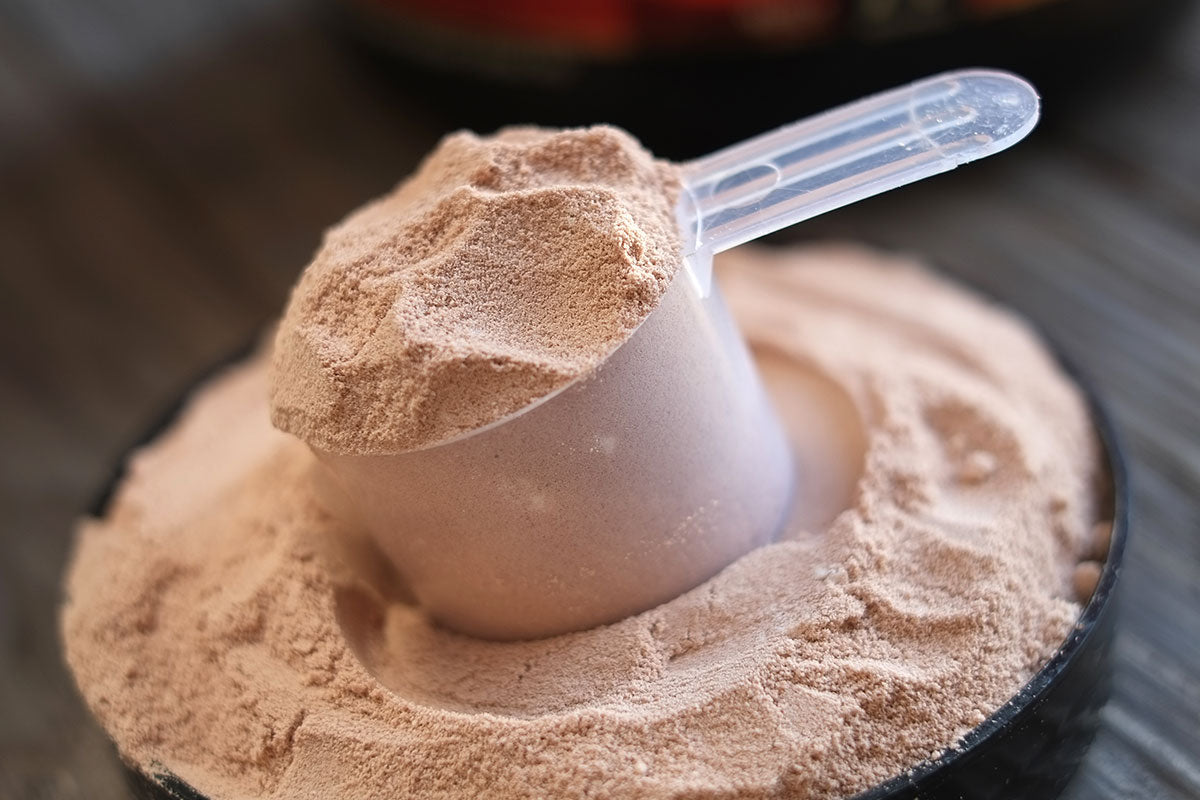By Amey Corson
SIX STAR AMASSADOR
During my Master’s program, I worked as a nutrition coordinator for several heavy-hitting protein intake studies on trained populations. Between research done at school and personal interest queries, I discovered that the trick is figuring out what to do with all that information available so you don’t lose your gains while drowning in data! This is a worthwhile endeavor because protein provides the building blocks for precious muscle growth and so much more.
For the purpose of this article, I’m focusing on guidance for optimizing protein intake in “trained” active individuals from the latest and greatest International Society of Sports Nutrition (ISNN) position stand. I’ll also share some additional little-known reasons to increase protein intake and provide some anecdotal asides from my experience as a coach and lab rat.
QUICK AND PAINLESS WAYS TO OPTIMIZE YOUR PROTEIN INTAKE

Unless otherwise noted, the following recommendations were taken from the ISNN position stand1.
- Consume 1.4g to 2.0g of protein per kg bodyweight (0.64g to 0.91g per pound bodyweight) per day to meet sufficient protein intake as an active individual.
- 3.0+ grams per kg per day of protein (1.36+ grams per pound) intake has been shown to be even more beneficial for improving body composition.
- Consume an absolute dose of at least 20g to 40g of protein every 3 to 4 hours. (Add more as needed to reach your daily protein intake goal in grams.)
- Opt for “high-quality” protein sources when you can, preferably whole food protein sources and high-quality supplements that contain all of the essential amino acids.
- If you can’t always get whole food sources, you can still be optimal by supplementing your diet with highly bioavailable protein sources such as whey protein.
- Leucine content of 700mg to 3000mg is worth looking for in protein sources and supplements. This amino acid is much more abundant in whey protein, compared to other sources.
- Post-workout protein increases muscle protein synthesis after resistance training, and can help offset muscle damage and promote recovery in endurance athletes.
- Whey is an excellent source of post-workout protein since it is fast digesting and easy to take to the gym with you.
- If you are going to “go over” on your calorie intake for the day, you are best off ensuring the additional calories come from protein to optimize body composition.2
- Pre-bed casein intake of 30g to 40g can increase muscle protein synthesis and metabolism without contributing to fat gain.
OTHER BENEFITS TO INCREASING DIETARY PROTEIN

- Increasing protein intake is especially important for adults age 30 and older in order to prevent or delay the effects of sarcopenia (muscle loss).3
- If you’re injured, preliminary studies have shown that a higher protein intake, in addition to creatine supplementation, can optimize muscle tissue repair and synthesis as well as counteract some muscle atrophy.4
- Increasing protein intake while dieting has been shown to improve sleep in overweight and obese adults.5
- Consuming a higher protein diet helps preserve lean body mass, as well as perceptions of satiety and pleasure during energy restriction on a weight loss program.6
ANECDOTAL OPINIONS FROM A COACH AND LAB RAT: OPTIMAL VS. REALISTIC

During my last bikini prep, I was consuming upwards of 3g of protein per kg bodyweight. I’m a tall, large-framed person, so that meant over 230g of protein per day. That intake got me to my goal stage body, but was not sustainable for me in my day-to-day life after my show. I swung hard the other way and noticed a definite shift in my body composition when I was barely hitting 100g of protein per day.
Once I found a happy post-comp medium and started being more mindful of hitting a daily protein intake goal, I saw a shift in my body composition again, and felt leaner and tighter on the same calorie intake after only a few weeks. I pulled calories from my fat and carb intake, and lent it toward protein. People were even telling me, unprompted, that I looked leaner a few weeks after I made the switch. As a preference, I only eat meat one meal a day on average, and I am able to consistently hit about 2g protein per kg bodyweight per day. All of that being said, I encourage you to track your protein intake – make sure it’s within the optimal range, ensure you’re getting high-quality protein sources as often as possible and track your progress! You’ll be happy you did.
References:
1Jäger et al., 2017. International Society of Sports Nutrition Position Stand: protein and exercise. Journal of the International Society of Sports Nutrition 14(1).
2Antonio et al., 2016. The effects of a high protein diet on indices of health and body composition – a crossover trial in resistance-trained men. J Int Soc Sports Nutr 13(3).
3Morley et al., 2010. Nutritional recommendations for the management of sarcopenia. Journal of the American Medical Directors Association 11(6): 391–396.
4Tack, C., 2016. Dietary supplementation during musculoskeletal injury. Strength and Conditioning Journal 38(1): 22–26.
5Zhou et al., 2016. Higher-protein diets improve indexes of sleep in energy-restricted overweight and obese adults: results from 2 randomized controlled trials. American Journal of Clinical Nutrition 103(3): 766–774.
6Leidy et al., 2007. Higher protein intake preserves lean mass and satiety with weight loss in pre-obese and obese women. Obesity 15(2): 421–429.




